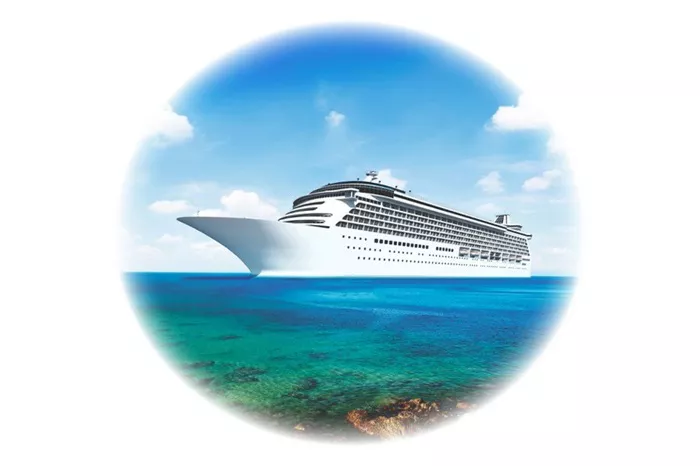Holiday insurance is a crucial component of any holiday planning process, providing peace of mind and financial protection against unforeseen events. However, determining the best time to purchase holiday insurance can be tricky. This guide explores various aspects of travel insurance, helping you understand when and why to secure coverage to maximize its benefits.
Immediate Protection
The best time to buy holiday insurance is immediately after booking your trip. This approach ensures you benefit from pre-departure cover, which is essential for protecting against cancellations and travel changes.
Benefits of Immediate Protection
Cancellation Coverage: Once you book your trip, any unforeseen event that forces you to cancel can result in significant financial loss. Buying insurance right away provides coverage for these events, including medical emergencies, family emergencies, or unforeseen work obligations.
Pre-Departure Changes: Travel plans can change due to various reasons such as natural disasters, political unrest, or airline strikes. Immediate coverage ensures you’re protected against these unexpected changes.
Peace of Mind: Knowing that you have coverage from the moment you book your trip allows you to relax and enjoy the anticipation of your holiday without worrying about potential risks.
Coverage Duration
Understanding the duration of your travel insurance coverage is key to making an informed purchase.
Single Trip Travel Insurance
Single trip travel insurance typically covers you from the day the policy is bought until the return home date specified in the policy. This type of policy is ideal for travelers who plan a specific trip with defined dates.
Coverage Start Date: Your insurance begins on the date of purchase, ensuring immediate protection.
End Date: Coverage ends when you return home, covering you for the entire duration of your trip.
Early Purchase Benefits
Purchasing travel insurance early not only provides immediate protection but can also qualify you for bonus coverages.
Additional Coverage Options
Cancel for Any Reason (CFAR): Some policies offer CFAR as an add-on if you purchase your insurance within a specific time frame after booking your trip. CFAR allows you to cancel your trip for reasons not typically covered by standard policies and still receive partial reimbursement.
Pre-Existing Condition Waivers: Buying early often qualifies you for a waiver of exclusions for pre-existing medical conditions, provided you meet specific requirements such as being medically able to travel at the time of purchase.
Last-Minute Options
While it is ideal to buy travel insurance as soon as you book your trip, it’s still possible to purchase it at the last minute or even after departure, though this may limit the coverage available.
Last-Minute Insurance
Immediate Coverage: Many insurers offer policies that provide coverage almost immediately after purchase, which can be beneficial for last-minute travelers.
Limited Benefits: Purchasing insurance after booking may exclude coverage for pre-existing conditions or trip cancellations. Some benefits, such as CFAR, may not be available if you buy too close to your departure date.
see also:How Much Is Holiday Insurance?
Policy Types
Travel insurance policies come in various forms, each suited to different travel needs. Understanding the differences between single trip and annual multi-trip policies can help you choose the right coverage.
Single Trip Policies
Defined Coverage Period: Ideal for one-off trips with specific start and end dates.
Comprehensive Coverage: Provides robust protection for the duration of one specific trip.
Annual Multi-Trip Policies
Year-Round Coverage: Ideal for frequent travelers, offering coverage for multiple trips within a year.
Cost-Effective: Often more economical for those who travel multiple times a year compared to purchasing multiple single trip policies.
Cancellation Coverage
Cancellation coverage is a crucial aspect of travel insurance, protecting you from financial loss due to unforeseen events.
Typical Covered Events
Medical Emergencies: Illness or injury that prevents you or a travel companion from traveling.
Family Emergencies: Death or serious illness of a family member.
Work Obligations: Unexpected work commitments, such as being required to work during your travel dates.
Travel Provider Bankruptcy: Bankruptcy or financial default of your travel provider, which can disrupt your plans.
see also:What Does Holiday Insurance Cover You For?
Exclusions and Limitations
Travel insurance policies come with exclusions and limitations that you should be aware of before purchasing.
Common Exclusions
Pre-Existing Conditions: Medical conditions existing before the policy purchase date may not be covered unless a waiver is obtained.
High-Risk Activities: Certain activities like extreme sports or adventure activities may be excluded unless specifically covered by an add-on.
Non-Refundable Costs: Some policies may not cover non-refundable deposits or payments if you cancel for reass not included in the policy.
Limitations
Coverage Caps: Policies often have limits on the amount reimbursed for specific claims, such as medical expenses or trip cancellations.
Documentation Requirements: To file a claim, you typically need to provide comprehensive documentation, such as receipts, medical reports, and proof of travel arrangements.
Choosing the Right Policy
Selecting the right travel insurance policy involves considering several factors to ensure it meets your specific needs.
Tips for Choosing the Right Policy
Destination: Ensure the policy covers your travel destination, including any specific risks associated with that location.
Length of Stay: Choose a policy that covers the entire duration of your trip. For extended trips, consider policies designed for long-term travel.
Activities Planned: If your trip includes activities like skiing, scuba diving, or hiking, ensure these are covered by your policy or available as add-ons.
Policy Comparison: Compare different policies and providers to find the best coverage at a competitive price. Consider the reputation of the insurer, coverage limits, and customer reviews.
Conclusion
The best time to buy holiday insurance is immediately after booking your trip, providing you with essential protection against cancellations and unforeseen changes. Understanding the duration of coverage, the benefits of early purchase, and the options available for last-minute insurance can help you make an informed decision. By considering the type of policy, cancellation coverage, exclusions, and your specific travel needs, you can select the right travel insurance policy to ensure a safe and enjoyable trip. Stay informed and proactive to maximize the benefits and protection offered by your travel insurance.
FAQs about Travel Insurance
1. How Much in Advance Should I Get Travel Insurance?
It’s advisable to purchase travel insurance as soon as you book your trip. This ensures you are covered for any unexpected events that may occur before your departure, such as trip cancellations, medical emergencies, or natural disasters. Ideally, you should get travel insurance at least 1-2 weeks before your trip, but purchasing it immediately after booking provides the best coverage.
2. What Insurance Should I Get for My Holiday?
The type of insurance you should get for your holiday depends on various factors, including your destination, planned activities, and personal health. Key types of travel insurance to consider include:
Trip Cancellation/Interruption Insurance: Covers the cost of your trip if you need to cancel or cut it short due to unexpected circumstances.
Medical Insurance: Provides coverage for medical emergencies, hospital stays, and medical evacuation.
Baggage and Personal Belongings Insurance: Covers loss, theft, or damage to your luggage and personal items.
Travel Delay Insurance: Provides reimbursement for expenses incurred due to travel delays, such as additional accommodation or meals.
Adventure Sports Insurance: If you plan to participate in activities like skiing, scuba diving, or hiking, ensure your policy covers these activities.
3. What Is the Best Travel Insurance to Buy?
The best travel insurance depends on your specific needs and circumstances. Here are some top-rated travel insurance providers known for comprehensive coverage and reliable service:
World Nomads: Ideal for adventure travelers, offering coverage for a wide range of activities and destinations.
Allianz Global Assistance: Known for extensive coverage options and 24/7 customer support.
Travel Guard by AIG: Offers customizable plans with various add-ons for different types of travelers.
AXA Travel Insurance: Provides comprehensive coverage and strong customer service, suitable for European travelers.
InsureMyTrip: A comparison site that helps you find the best travel insurance policy based on your needs and budget.
When selecting travel insurance, compare policies based on coverage, exclusions, customer reviews, and cost to find the best fit for your trip.
4. Is It Worth Claiming on Holiday Insurance?
Yes, it is worth claiming on holiday insurance if you experience any covered incidents during your trip. Filing a claim can provide financial reimbursement for unexpected expenses such as medical emergencies, trip cancellations, lost baggage, or travel delays. Here are some reasons why claiming on holiday insurance is beneficial:
Financial Protection: Reimbursement for significant expenses that could otherwise disrupt your travel budget.
Peace of Mind: Knowing that you have coverage in case of emergencies or unexpected events provides peace of mind while traveling.
Assistance Services: Many travel insurance policies offer 24/7 emergency assistance, helping you navigate medical or logistical issues abroad.
You Might Be Interested In





















